Vortospecoj kaj fleksiado de vortoj
Substantivoj indikas personojn, bestojn, objektojn, ecojn kaj agojn.
Ni dividas ilin al:
-
Komunaj
Nomoj de unuspecaj personoj, bestoj, objektoj ktp. Ni skribas ilin per malgranda unua litero
človek ,učiteľ ,pes ,dom ,strom ,kniha ,škola ,mesiac ,leto ,pondelok ,január -
Unikaj
Nomoj de unikaj personoj, bestoj, geografiaj lokoj, festoj ktp. Ni skribas ilin per GRANDA unua litero. Nomoj de semajnaj tagoj kaj monatoj ne estas personaj nomoj!
Zuzana ,Dunčo ,Vysoké Tatry ,Bratislava ,Slovensko ,Vianoce ,Veľká noc -
Konkretaj
Nomoj de personoj, bestoj, objektoj Materiaj, oni povas ilin percepti
brat ,Karol ,mačka ,pes ,ryba ,zajac ,stôl ,dom ,kniha ,škola -
Malkonkretaj
Nomoj de ecoj, agoj Malmateriaj, oni ne povas ilin percepti
zdravie ,múdrosť ,šťastie ,láska ,leto ,prázdniny ,matematika
Deklinacio de substantivoj
Substantivojn ni fleksias (deklinacias) laŭ pluraj deklinacioj. Ĉiu gramatika genro (vira, ina kaj neŭtra) havas siajn deklinaciojn. Ni devas scii ne nur al kiu genro sed ankaŭ al kiu deklinacio apartenas ĉiu substantivo. Tiam ni povos uzi ĝin ĝuste.
Ekz. substantivo mama apartenas al deklinacio
| Singularo | Pluralo | |
|---|---|---|
| N | ||
| G | ||
| D | ||
| A | ||
| L (o) | ||
| I (so) |
| Singularo | Pluralo | |
|---|---|---|
| N | ||
| G | ||
| D | ||
| A | ||
| L (o) | ||
| I (so) |
Ankaŭ:
Substantivo chlapec apartenas al deklinacio chlap.
| Singularo | Pluralo | |
|---|---|---|
| N | ||
| G | ||
| D | ||
| A | ||
| L (o) | ||
| I (so) |
| Singularo | Pluralo | |
|---|---|---|
| N | ||
| G | ||
| D | ||
| A | ||
| L (o) | ||
| I (so) |
Ankaŭ:
Deklinacioj de substantivoj
Vira genro Singularo
| Substantivoj de vivaj objektoj | ||
|---|---|---|
| N | ||
| G | ||
| D | ||
| A | ||
| L | ||
| I | ||
| Substantivoj de ne vivaj objektoj | ||
|---|---|---|
| N | ||
| G | ||
| D | ||
| A | ||
| L | ||
| I | ||
| Fremddevenaj substantivoj | |
|---|---|
| N | |
| G | |
| D | |
| A | |
| L | |
| I |
Vira genro Pluralo
| Substantivoj de vivaj objektoj | ||
|---|---|---|
| N | ||
| G | ||
| D | ||
| A | ||
| L | ||
| I | ||
| Substantivoj de ne vivaj objektoj | ||
|---|---|---|
| N | ||
| G | ||
| D | ||
| A | ||
| L | ||
| I | ||
| Fremddevenaj substantivoj | |
|---|---|
| N | |
| G | |
| D | |
| A | |
| L | |
| I |
Helpilo:
Substantivoj de vivaj objektoj
- Finiĝas per konsonanto aŭ -o
chlap ,chlapec ,otec ,brat ,syn ,učiteľ ,spolužiak ,priateľ ,pes ,lev ,dedo ,Jano ,Martin - Finiĝas per -a
hrdina ,hokejista ,huslista ,cyklista ,vodca ,sluha
Substantivoj de ne vivaj objektoj
- Finiĝas per malmola aŭ neŭtra konsonanto
dub ,dom ,strom ,obraz ,hrad ,plot ,stôl ,vlak - Finiĝas per mola konsonanto
stroj ,kôš ,oheň ,nôž ,čaj ,počítač
Vivantaj viraj substantivoj estas fleksigitaj en la singularo laŭ la modelo chlap, kaj en la pluralo laŭ la modelo dub (se substantivo finiĝas je malmola aŭ ambigua konsonanto), aŭ laŭ la modelo stroj (se la substantivo finiĝas per mola konsonanto).
Deklinacio chlap
Al deklinacio
- substantivoj de vira genro, vivaj objektoj, kiuj finiĝas per konsonanto aŭ -o:
chlapec ,otec ,syn ,dedo ,Jano ,pes ,vnuk ,spolužiak - nur en singularo – bestojn indikantaj substantivoj:
pes ,vlk ,vták ,lev ,medveď ,kôň
Rimarko: En plurnombra nominativo ili povas havi ankaŭ finaĵojn //-ovia// (
Deklinacio hrdina
Al deklinacio
- substantivoj de vira genro (vivaj objektoj), kiuj finiĝas per -a:
sudca ,sluha ,hokejista ,huslista
Rimarko: Vortoj kun finaĵo //-ista// en plurnombra nominativo havas finaĵon //-i// (
Deklinacio dub
Al deklinacio
- substantivoj de vira genro (ne vivaj objektoj), kiuj finiĝas per malmola aŭ neŭtra konsonanto:
potok ,dom ,strom ,obraz ,autobus ,trolejbus ,pondelok ,utorok ,štvrtok ,piatok - nur en pluralo – bestojn indikantaj substantivoj, kiuj finiĝas per malmola aŭ neŭtra konsonanto:
slon ,had ,vlk ,lev
Deklinacio dub
Al deklinacio
- substantivoj de vira genro (ne vivaj objektoj), kiuj finiĝas per mola konsonanto:
kôš ,oheň ,nôž ,čaj ,počítač ,dážď ,máj ,kameň - nur en pluralo – bestojn indikantaj substantivoj, kiuj finiĝas per mola konsonanto:
medveď ,kôň ,mravec
Deklinacio kuli
Al deklinacio
- fremdaj substantivoj de vira genro, viraj nomoj kaj familiaj nomoj, kiuj finiĝas per vokaloj i, y, í, e, é, ä, ű, ö, ő:
pony ,grizly ,abbé ,Škultéty ,Goethe ,Krčméry ,Nietsche
Ina genro Singularo
| N | |
|---|---|
| G | |
| D | |
| A | |
| L | |
| I |
| N | |
|---|---|
| G | |
| D | |
| A | |
| L | |
| I |
| N | |
|---|---|
| G | |
| D | |
| A | |
| L | |
| I |
| N | |
|---|---|
| G | |
| D | |
| A | |
| L | |
| I |
| N | |
|---|---|
| G | |
| D | |
| A | |
| L | |
| I |
| N | |
|---|---|
| G | |
| D | |
| A | |
| L | |
| I |
Ina genro Pluralo
| N | |
|---|---|
| G | |
| D | |
| A | |
| L | |
| I |
| N | |
|---|---|
| G | |
| D | |
| A | |
| L | |
| I |
| N | |
|---|---|
| G | |
| D | |
| A | |
| L | |
| I |
| N | |
|---|---|
| G | |
| D | |
| A | |
| L | |
| I |
| N | |
|---|---|
| G | |
| D | |
| A | |
| L | |
| I |
| N | |
|---|---|
| G | |
| D | |
| A | |
| L | |
| I |
Helpilo:
Finiĝas per -a
- Antaŭ la -a estas malmola aŭ neŭtra konsonanto
žena ,voda ,hlava ,ruka ,noha ,chata ,Bratislava ,Nitra ,rodina - Estas mola konsonanto antaŭ {1}
ulica ,práca ,stanica ,schôdza ,tabuľa ,ruža ,cibuľa ,vaňa ,nedeľa
Finiĝas per konsonanto
- en nominativo pluralo finiĝas per -e
dlaň ,pieseň ,loď ,báseň - en nominativo pluralo finiĝas per -i
kosť ,noc ,krv ,vlasť
Deklinacio žena
Al deklinacio
- substantivoj de ina genro kun finaĵo -a. Antaŭ la -a estas malmola aŭ neŭtra konsonanto.:
mama ,dcéra ,vnučka ,rodina ,kniha ,cesta ,voda ,ruka ,noha ,hlava ,streda ,sobota
Rimarko: Kiam en genitivo pluralo ni ne aldonas iun finaĵon, plilongiĝas radiko de la vorto.
mama →mám kniha →kníh ruka →rúk noha →nôh
Deklinacio ulica
Al deklinacio
- inaj substantivoj finiĝantaj per {1}. Estas mola konsonanto antaŭ {1}:
práca ,stanica ,schôdza ,tabuľa ,ruža ,cibuľa ,vaňa ,fľaša ,nedeľa ,chvíľa
Rimarko: Kiam en genitivo pluralo ni ne aldonas iun finaĵon al la vorto, plilongiĝas ĝia radiko.
stanica →staníc tabuľa →tabúľ fľaša →fliaš chvíľa →chvíľ
Deklinacio dlaň
Al deklinacio
- substantivoj de ina genro, kiuj finiĝas per konsonanto. En plurnombra nominativo ili finiĝas per //-e// (
dlane ).:
pieseň ,loď ,báseň ,reportáž ,posteľ ,predpoveď
Deklinacio kosť
Al deklinacio
- substantivoj de ina genro, kiuj finiĝas per konsonanto. En plurnombra nominativo ili finiĝas per //-i// (
kosti ).:
vec ,noc ,step ,pomoc ,zmes ,radosť ,krv
Deklinacio gazdiná
Al deklinacio
- substantivoj de ina genro - nur kelketaj vortoj. Ĉefe tio estas nomoj de personoj de feŭda epoko.:
princezná ,kráľovná ,cisárovná ,šľachtičná ,stryná
Deklinacio idea
Foje oni distingas apartan deklinacion idea. Al la deklinacio idea apartenas:
- fremdaj vortoj de ina genro, kiuj finiĝas per -ea, -oa, -ua:
orchidea ,Andrea ,aloa ,Nikaragua ,Ikea
Apartajn deklinaciojn havas vortoj
| Singularo | Pluralo | |
|---|---|---|
| N | ||
| G | ||
| D | ||
| A | ||
| L (o) | ||
| I (so) |
| Singularo | Pluralo | |
|---|---|---|
| N | ||
| G | ||
| D | ||
| A | ||
| L | ||
| I |
Rimarko: Substantivon pani ni deklinacias nur tiam, kiam ĝi estas sola. Se ĝi estas en kunmetaĵo kun persona nomo, ni ne deklinacias ĝin.
to je pani Malá ideme od pani Malej ideme k pani Malej vidím pani Malú
Neŭtra genro Singularo
| N | |
|---|---|
| G | |
| D | |
| A | |
| L | |
| I |
| N | |
|---|---|
| G | |
| D | |
| A | |
| L | |
| I |
| N | |
|---|---|
| G | |
| D | |
| A | |
| L | |
| I |
| N | |
|---|---|
| G | |
| D | |
| A | |
| L | |
| I |
Neŭtra genro Pluralo
| N | |
|---|---|
| G | |
| D | |
| A | |
| L | |
| I |
| N | |
|---|---|
| G | |
| D | |
| A | |
| L | |
| I |
| N | |
|---|---|
| G | |
| D | |
| A | |
| L | |
| I |
| N | |
|---|---|
| G | |
| D | |
| A | |
| L | |
| I |
Helpilo:
- Finiĝas per -o, -on aŭ -um
mesto ,auto ,jablko ,Slovensko ,epiteton ,múzeum - Finiĝas per -e
srdce ,vajce ,more ,nástupište ,pole - Finiĝas per -ie
vysvedčenie ,lístie ,stretnutie ,námestie ,umenie - Finiĝas per -a aŭ -ä
dievča ,dieťa ,zviera ,kura ,žriebä
Deklinacio mesto
Al deklinacio
- substantivoj de neŭtra genro kun finaĵo -o:
auto ,koleso ,jablko ,Slovensko ,kakao ,drevo ,dielo ,vedro ,oko ,ucho ,brucho ,mydlo - fremdaj vortoj kun finaĵoj -on aŭ -um:
epiteton ,múzeum
Deklinacio srdce
Al deklinacio
- substantivoj de neŭtra genro kun finaĵo -e:
vajce ,more ,nástupište ,pole
Deklinacio vysvedčenie
Al deklinacio
- substantivoj de neŭtra genro kun finaĵo -ie:
lístie ,stretnutie ,zahraničie ,námestie ,umenie
Rimarko: La finaĵoj ĉiam restas longaj, regulo de ritma mallongigo ne validas.
Deklinacio dievča
Al deklinacio
- substantivoj de neŭtra genro kun finaĵoj -a aŭ -ä:
dieťa ,zviera ,páža ,knieža ,mláďa ,kura ,žriebä
Rimarko: Vorto dieťa havas jenajn pluralajn formojn::
Nur-pluralaj substantivoj
Kelkaj substantivoj havas nur pluralan formon, eĉ se ili indikas nur unu objekton:
tie nohavice tie plavky tie šaty tie okuliare tie nožnice tie pľúca tie Košice
Čo je to? To sú okuliare. Aké sú okuliare? Okuliare sú nové. Čie sú to okuliare? Okuliare sú mamine. Tie okuliare sú nové a mamine.
Tiaj ĉi substantivoj ne havas singularan formon, nur pluralan. Ni nomas ilin pluralformaj substantivoj. Ili estas deklinaciataj nur en pluralo.
Pluralforma substantivo:
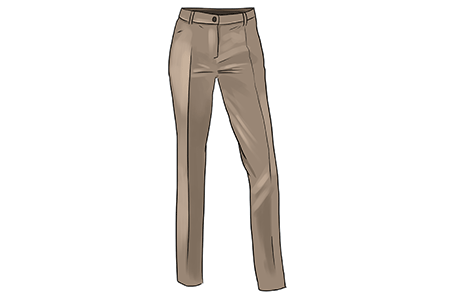
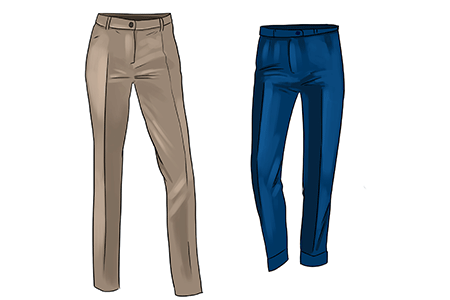
Distingu:
Unu objekto (pluralforma substantivo)
nohavice plavky nohavičky slipy rifle šaty
Multaj objektoj
rukavice (jedna rukavica ,dve rukavice) topánky (jedna topánka ,dve topánky) čižmy (jedna čižma ,dve čižmy) ponožky (jedna ponožka ,dve ponožky)
Pluralformajn substantivojn ni ofte uzas por geografiaj nomoj.
mesto Košice mesto Levice mesto Trenčianske Teplice pohorie Vysoké Tatry pohorie Nízke Tatry Alpy, Benátky, Atény, Piešťany, Donovaly, Kúty...
Inaj vortoj de profesioj
Inajn formojn de profesioj ni kreas per sufikso {1}:
lekár →lekárka predavač →predavačka kuchár →kuchárka učiteľ →učiteľka podnikateľ →podnikateľka kuchár →kuchárka pekár →pekárka manažér →manažérka sekretár →sekretárka policajt →policajtka prekladateľ →prekladateľka fotograf →fotografka
Se vira formo de la profesio finiĝas per {1}, {1} ŝanĝiĝas al {2} kaj tiam ni aldonas sufikson {3}:
právnik →právnička pokladník →pokladníčka čašník →čašníčka tanečník →tanečníčka lekárnik →lekárnička informatik →informatička chemik →chemička
Diminutivoj
En konversacioj kun infanoj ni ofte uzas diminutivojn kaj konatajn alparolojn. Diminutivoj estas vortoj, kiuj nomas malgrandajn kaj etajn aferojn. Krom la substantiva signifo la eta sufikso ankaŭ havas esprimsignifon, ĝi esprimas la pozitivan aŭ ironie negativan emocian sintenon de la parolanto. Ili okazas en la parolado de infanoj same kiel en la parolado de plenkreskuloj.
Kde máš autíčka, Janko? Páči sa ti tento domček pre bábiky? Aké krásne dieťatko! Kde máš mamičku? - k.s.

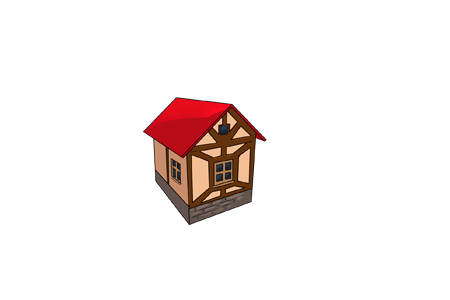

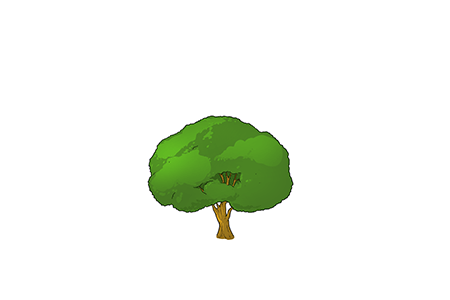

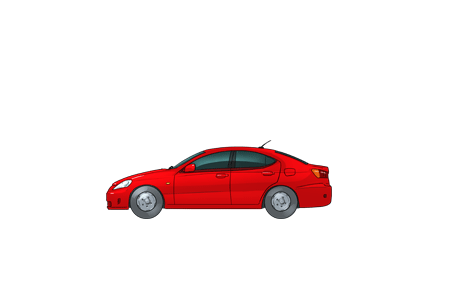

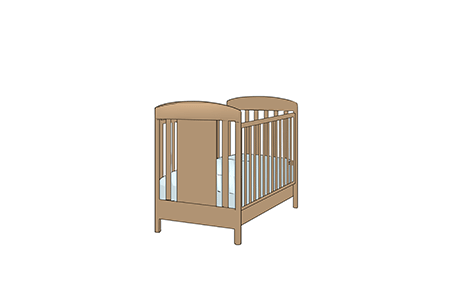
De unu vorto foje eblas krei kelkajn diminutivajn formojn, ekz.:
Zuzana →Zuzka ,Zuzička ,Zuzanka …ruka →rúčka ,ručička …mama →mamka ,mamička ,mamulienka …otec →otecko tato →tatko ,tatíčko
Verbaj substantivoj
Ili esprimas agon kiel verboj sed havas substantivan formon. Ni kreas ilin tre facile: de infinitivo //písať// ni deprenas finaĵon //-ť// kaj aldonas finaĵon //-nie// aŭ //-tie//: //písanie//. Ĉiuj tiaj ĉi substantivoj havas neŭtran genron kaj estas deklinaciataj laŭ la deklinacio
|
Tio estas programo por skribado de tekstoj.
|
|
Tio estas programo por aŭskultado de muziko.
|
Atenton:
kresliť →kreslenie vidieť →videnie zapnúť →zapnutie vypnúť →vypnutie